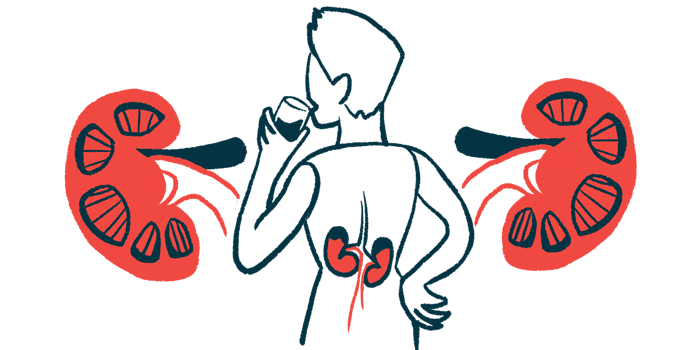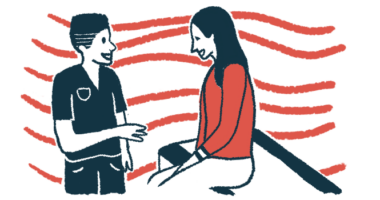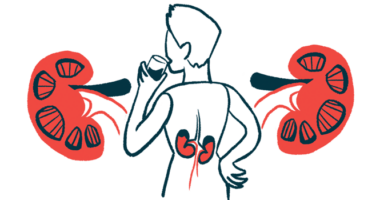Soliris Plus Blood Cancer Treatment Prevents aHUS Relapse in Rare Case
Combo therapy successfully treats woman, 45, after kidney transplant

Using Soliris (eculizumab) in combination with the blood cancer treatment obinutuzumab successfully prevented the recurrence of atypical hemolytic uremic syndrome (aHUS) after kidney transplant in a 45-year-old woman, a case study reported for the first time.
The woman lost kidney function due to a rare occurrence of aHUS driven by both genetic and autoimmune-related susceptibility.
The team noted that, in such rare cases, “the current practice favors a personalized approach.” But they added: “For the first time, we report the prophylactic use of [Soliris] in association with … obinutuzumab,” typically used as a blood cancer treatment.
According to the researchers, the patient’s “perspective regarding the overall experience and the specific treatments received was very positive.”
Her case was described in the study, “Case report: Eculizumab plus obinutuzumab induction in a deceased donor kidney transplant recipient with DEAP-HUS,” published in the journal Frontiers in Immunology.
Rare cases of a rare disease
aHUS is a rare disorder caused by the abnormal activation of part of the immune system called the complement cascade. It leads to increased inflammation and blood clot formation in small blood vessels, particularly those in the kidneys.
For patients with advanced kidney disease, a kidney transplant may be necessary.
The disorder mainly is triggered by a disease or infection in people who carry mutations in genes encoding proteins that regulate complement system activity.
Mutations in the CFH gene, which lead to a deficiency in a regulatory protein called complement factor H (CFH), can predispose a person to develop aHUS. That’s because CFH and several related proteins prevent abnormal complement activation.
Self-reactive antibodies — called autoantibodies — that target and deplete CFH also have been associated with a severe form of aHUS. This severe form is marked by a relapsing-remitting course, digestive tract and cardiovascular involvement, kidney failure, and worse mortality.
In rare cases, some aHUS patients have a unique combination of both of these traits: mutations in CFH-related (CFHR) proteins and the presence of anti-CFH antibodies in their bloodstream. This condition is known as deficiency of CFHR plasma proteins and autoantibody-positive form of HUS, or DEAP-HUS.
While there is no consensus regarding the management of DEAP-HUS, standard aHUS treatments have been used in these patients to eliminate autoantibodies and replenish CFH. Such treatments include anti-inflammatory and immunosuppressing medications, the complement inhibitor Soliris, and plasma exchange.
However, in DEAP-HUS patients with kidney failure, the risk of aHUS relapse after a kidney transplant is high. As a result, repeated plasma exchange before and after transplant, and regular use of Soliris, are recommended for these patients.
1st report of blood cancer treatment used with Soliris
Now, for the first time, researchers in Italy have described the case of a woman with DEAP-HUS treated with both Soliris and the approved blood cell cancer treatment obinutuzumab.
The woman underwent a kidney transplant, and disease relapse was prevented by a combination of the two therapies.
aHUS was first recorded at age 7 when the patient was hospitalized for several episodes of loss of consciousness linked to elevated blood pressure and seizures. Clinical examination showed signs of aHUS, with severe acute kidney injury. She received high-intensity supportive care, blood transfusions, and dialysis, which resolved the episode.
The disease remained quiet until the patient reached the age of 27, but a complicated pregnancy triggered multiple relapses. She eventually developed progressive kidney failure, despite repeated plasma exchange sessions. She was referred to a local kidney clinic in 2013 for ongoing treatment, but not with aHUS-specific therapies.
There were no further episodes for another seven years until her kidney function slowly began to deteriorate. Blood tests showed low levels of complement protein C3, a sign of complement dysfunction. A diagnosis of aHUS was finally made after genetic testing and other investigations demonstrated the presence of defects in genes encoding CFH-related proteins and elevated levels of anti-CFH antibodies.
While waiting for a kidney transplant, her anti-CFH antibodies remained elevated and C3 plasma levels low. As such, she was considered at high risk of experiencing an aHUS relapse after the transplant.
One hour before surgery, she was treated with Soliris. Basiliximab (sold as Simulect) was given after the transplant to suppress organ rejection, followed by a series of anti-inflammatory and immune-suppressing medications.
Six days after the transplant, she received obinutuzumab (sold as Gazyva), a therapy designed to deplete antibody-producing immune B-cells, followed by another round of Soliris.
Soon after surgery, there were no signs of delayed kidney transplant function, organ rejection, aHUS relapse, or other surgical or infectious complications. She was discharged from the hospital after 12 days, with kidney function tests in the normal range, complement system successfully suppressed by Soliris, and no signs of anti-CFH antibodies due to obinutuzumab treatment.
Further studies are warranted to confirm the efficacy of obinutuzumab [plus Soliris]
After a month, she received another round of Soliris due to blood tests showing a slow rise in a complement marker. One year later, she had normal complement activity, excellent kidney function, no detectable anti-CFH antibodies, sustained B-cell depletion, and no signs of hemolytic anemia, or red blood cell destruction.
“Despite the encouraging results and the reproducibility of the [treatment] scheme herein described, we recognize the anecdotal value of the present report as much as the need for validation with properly designed trials,” the team wrote.
“Further studies are warranted to confirm the efficacy of obinutuzumab for anti-CFH antibody blockage, possibly defining the risks and benefits associated with prolonged B-cell depletion compared to chronic complement inhibition,” the researchers concluded.








